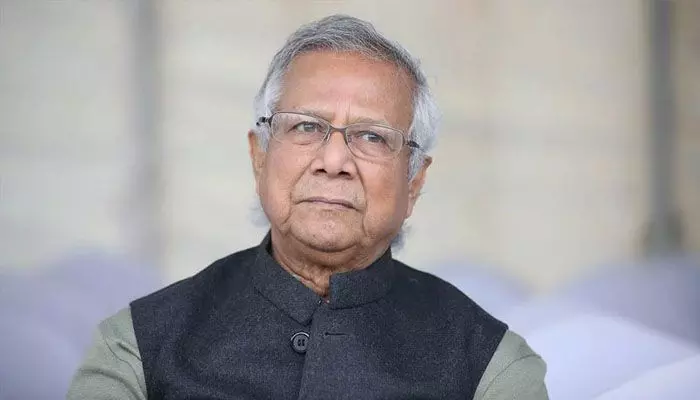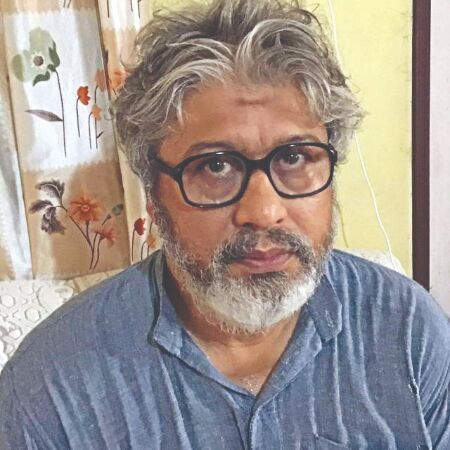Shifting dynamics
The conviction of Nobel laureate Muhammad Yunus, who pioneered a parallel banking system with foreign connections, will strengthen Sheikh Hasina’s image ahead of the General Elections

On the first day of 2024, a court in Bangladesh sentenced Nobel laureate Muhammad Yunus to six months in prison for labour law violations. Yunus, an economist, and three employees from Grameen Telecom, a company he founded, were convicted on Monday of failing to create a welfare fund for its employees, reports Reuters. All four were immediately granted bail pending appeals.
Yunus, 83, and his Grameen Bank won the 2006 Noble Peace Prize for their work for lifting millions out of poverty by granting tiny loans to the rural poor of Bangladesh. He pioneered a global movement known as microcredit. Prime Minister Sheikh Hasina once accused him of “sucking blood from the poor”.
Sheikh Merina Sultana, head of Dhaka’s third labour court, found Yunus and three colleagues from Grameen Telecom guilty, sentencing each to six months in jail. All four were immediately granted bail pending appeals. Sultana said in her verdict that 67 Grameen Telecom employees were supposed to have been made permanent, and that employees’ participation and welfare funds had not been formed. She also said that following company policy, 5 per cent of the company’s dividends were supposed to be distributed to staff. Yunus is facing more than 100 other charges over alleged labour law violations and graft, reports The Guardian.
Earlier, Bangladesh’s Prime Minister blamed the Nobel Peace Prize winner for blocking World Bank’s funding of the Padma Bridge project. The conflict between the Hasina government and Yunus started when he wanted to remain the MD of the Grameen Bank even at the age of 71, though the Bank’s laws said an MD could remain in office up till 60 years of age. According to the Prime Minister, her government had given him a proposal to become the advisor of Grameen Bank. That was something even higher. But he insisted on retaining the MD post which the government denied. According to her, Yunus then used his personal contacts with top policymakers in the USA, and sent emails to Hilary Clinton and Mr Zoellick — the then president of the World Bank — to stop funding for Padma Bridge. On his last working day, without any board meeting, Zoellick blocked the funds to Padma Bridge, reports Prothom Alo.
Yunus and Grameen Bank had come under scrutiny more than a decade ago after a documentary in 2010 alleged the misuse of Norwegian funds. In 2011, Hasina’s administration began a review of the bank’s activities and Yunus was fired as managing director for allegedly violating government retirement regulations. He was also put on trial in 2013 on charges of receiving money without the government’s permission, including his Nobel Prize award and royalties from a book, reports The Guardian.
The root of the conflict
It is not clear why Sheikh Hasina's government and Yunus’s Grameen Bank entered into a conflict as early as 2011. The reason could be an outcome of a conflict between a rules-based banking system which the state wanted to implement and the idiosyncratic management style of a towering personality with enormous backing of global capital which a sovereign state was not prepared to accept. Though Yunus denied being a political threat to anyone, shortly after he was awarded the Nobel in 2006, there was a suggestion that he head the caretaker government that was meant to last for 90 days, but stayed on for two years. Although not a part of the caretaker government, during its tenure, he floated a political party but later dismantled it due to a lack of support.
As early as January 2011, the Grameen Bank, with its 20,000 employees and 8.3 million customers, had distributed Taka 600 billion (USD 8.2 billion) in loans. It was emerging as a parallel banking system, with huge foreign connections, in Bangladesh. No self-determining state would encourage such development for a long time.
On March 2, 2011, the Bangladesh government removed Yunus from the bank, a move he has battled without success all the way to the Supreme Court. As anticipated, Yunus’ removal has attracted international attention. The US has ‘warned’ (the word US official Robert O Blake used while visiting Dhaka) Prime Minister Sheikh Hasina Wajed that ‘no meaningful discussion’ on bilateral issues could take place until the matter is resolved and a ‘compromise’ reached.
Grameen Bank: an over hyped model
Grameen, a microcredit ‘pioneer,’ is alleged to charge interest at rates of between 24 to 36 per cent and levies service charges. It was found that the interest rates in adjoining West Bengal were much lower. Traditional Bania moneylenders charged between 24 to 30 per cent. Bangladesh’s state sector banks, whose rural spread was wide but not as deep as Grameen’s, charged just 7 per cent.
It may be recalled that in 1974, two years before Grameen bank was formed, Ela Bhatt, launched the Self-Employed Women’s Association (SEWA) in India, a bank developed upon principles advocated by Mahatma Gandhi. Economist Jagdish Bhagwati pointed out that, unlike Grameen Bank, SEWA had received no foreign money, and it had distributed dividends of 9–12 per cent annually each year since its founding. Moreover, unlike the Grameen Bank, throughout its existence, SEWA has been regulated by the Reserve Bank of India, staying strictly within the law and seeking no special dispensations.
The most serious mistake of the Yunus Model was its faulty assumption that ‘supply creates its own demand’! Yunus fell victim to a long-disproved fallacy in economic history known as Says Law. Quoting late Alice Amsden, Milford Bateman (2014) brilliantly explained, the core problem in developing countries today is not the supply of the simple items that the poor require to survive, but the sheer lack of local demand (or purchasing power) required to absorb it. After all, even in the very poorest communities there are generally always enough retail stores, street food outlets, basket-makers, bakeries, and so on, but the poor do not always have sufficient income to regularly access such important items in order to survive.
On January 7, Bangladesh will vote to elect its next government. Analysts predict Sheikh Hasina’s landslide victory. Yunus’s conviction is likely to strengthen her image. Let’s not forget that during the last five decades, Bangladesh has elevated itself from a ‘basket case’ to a rising star! It is unlikely to bow down to external pressures.
Views expressed are personal



